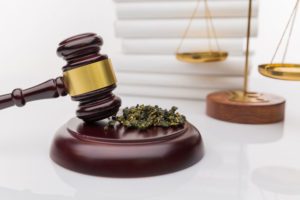 The Appellate Division continued in relevant part: When a law “has two distinct sections dealing with related matters, amendment to one section is not an amendment to others because it is presumed that if the Legislature had intended an amendment to apply to both sections it would have expressed such an intent.” 1A Norman J. Singer, Sutherland Statutory Constr. § 22.34 (7th ed. 2007). “The Legislature is presumed to be familiar with its own enactments, and to have passed or preserved cognate laws with the intent that they be construed to serve a useful and consistent purpose.” Zoning Bd. of Adjustment of Sparta Twp. v. Serv. Elec. Cable Television of N.J., Inc., (App. Div. 1985). Pursuant to these principles, the Legislature’s differential treatment of records of prior and pending charges for petty and disorderly persons marijuana offenses in N.J.S.A. 2C:52-6.1, compared to its treatment of records associated with underage persons’ use of marijuana in N.J.S.A. 2C:33-15 evinces its intent to subject the former group to the limitations associated with expungements.
The Appellate Division continued in relevant part: When a law “has two distinct sections dealing with related matters, amendment to one section is not an amendment to others because it is presumed that if the Legislature had intended an amendment to apply to both sections it would have expressed such an intent.” 1A Norman J. Singer, Sutherland Statutory Constr. § 22.34 (7th ed. 2007). “The Legislature is presumed to be familiar with its own enactments, and to have passed or preserved cognate laws with the intent that they be construed to serve a useful and consistent purpose.” Zoning Bd. of Adjustment of Sparta Twp. v. Serv. Elec. Cable Television of N.J., Inc., (App. Div. 1985). Pursuant to these principles, the Legislature’s differential treatment of records of prior and pending charges for petty and disorderly persons marijuana offenses in N.J.S.A. 2C:52-6.1, compared to its treatment of records associated with underage persons’ use of marijuana in N.J.S.A. 2C:33-15 evinces its intent to subject the former group to the limitations associated with expungements.
Extrinsic evidence supports our reading of the statutes in question. Proposed Assembly bill, A. 1978 (2022) would amend N.J.S.A. 2C:36A-1(e) to provide that “a person who has previously participated in . . . supervisory treatment . . . shall be eligible for supervisory treatment under this section if the previous supervisory treatment concerned . . . offenses involving . . . marijuana . . . subject to conditional discharge pursuant to this section.” The bill would further amend the PTI statute to state: “A person who previously received . . . a conditional discharge . . . shall be eligible for supervisory treatment . . . if the previous supervisory treatment concerned . . . marijuana.” Ibid. The bill synopsis explains “that a defendant who participated in a diversion program for certain marijuana offenses on prior occasion may again participate under certain circumstances.” Ibid.
The Sponsor’s Statement to the proposed bill states: Under current law, these programs require that the person wishing to participate not have been a previous participant in that particular program or in another diversionary program. Under the bill, previous participation in a diversionary program would no longer bar participation on a second occasion if the first participation was for a marijuana . . . offense that was subsequently decriminalized. [Sponsor’s Statement to A. 1978 15-16 (Jan. 11, 2022).]
The Court’s may be overlooking how long it took for an agreement regarding marijuana law reform to be reached, along with the fact that numerous proposed bills were scrapped or amended during the long process. The focus on this one proposed bill without a broad understanding of the entire process presents a distorted view of the Legislature’s intent.
